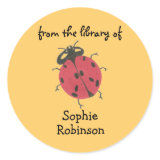
Once upon a time,
bullying was widely considered a rite of passage that toughened kids up for adulthood. But decades of studies have taught us the truth: Bullying is truly a no-win situation. It's
bad for the targets, the bullies, and the bystanders.
The good news?
A schoolwide commitment can reduce bullying significantly. And while consistent adult leadership and support is a must, some schools are
turning bystanders into powerful agents for change.
Most bullying happens away from adult eyes and ears. But for kids, it's a daily reality. Nine of 10 kids say they've seen someone bullied, says the
Center for Social and Emotional Education. They can choose to support the bully, ignore the episode, or support the target by finding a way to intervene safely, either in the moment or at another time.
Confronting the bully outright and telling him or her to stop, while courageous, may not always be safe. Other tactics:
~Tell an adult. If scared to name names, just say "please watch the girls' bathroom at lunch...bad things are happening there."
~Pull away the kid who's being bullied, and leave the scene together. Say "I need your help on something" or "Mr. Jones needs to see you right now."
~When a peer is targeted consistently, be a friend. Invite him or her to spend recess or eat lunch together. Give genuine compliments for a job well done or a new haircut, glasses, shoes, etc. Involve him or her in a positive activity. Teach him or her a new game or skill.
~Shoot down untrue or unkind rumors, to keep them from spreading: "That's not cool."
We parents can encourage our kids to step up, too. Think: What do we prioritize and praise? Is an A on that math test more exciting than finding out our kid befriended a bullied peer? It shouldn't be.






